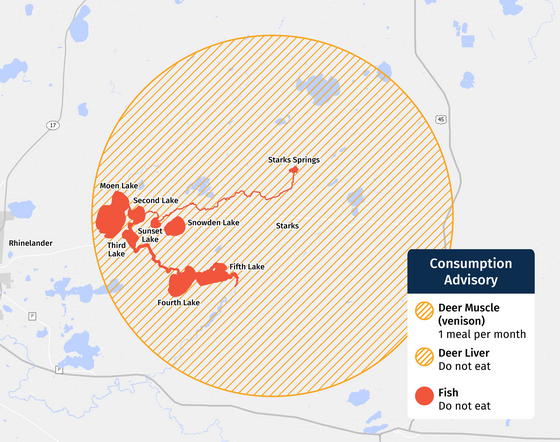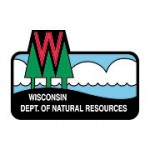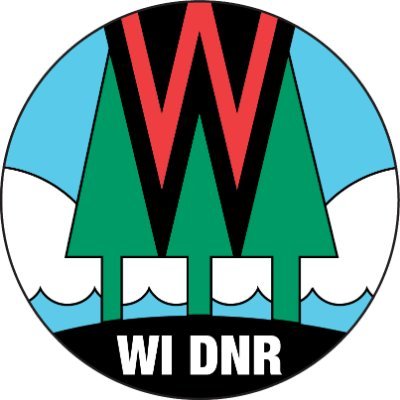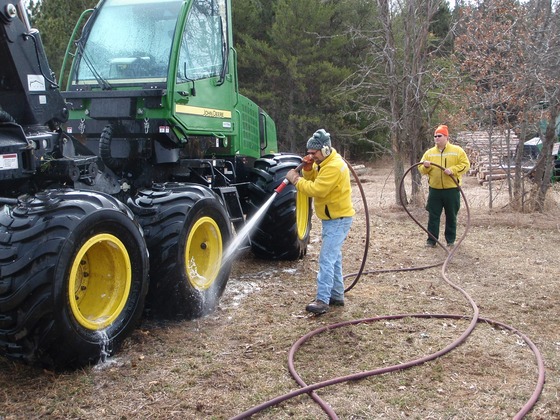DNR and DHS Issue New PFAS-based Consumption Advisories for Fish and Deer Near town of Stella and Surrounding Waterbodies in Oneida County

The Wisconsin DNR and DHS have issued new consumption advice for fish and deer harvested near the Town of Stella in Oneida County. / Photo Credit: Wisconsin DNR
MADISON, Wis. – The Wisconsin Department of Natural Resources (DNR) and the Department of Health Services (DHS) today announced new deer and fish consumption advisories for the Town of Stella and nearby waterbodies due to the contamination of per- and polyfluoroalkyl substances (PFAS).
Fish Consumption Advisory
The DNR and DHS have issued a “Do Not Eat” PFAS-based consumption advisory for all fish species from the Moen Chain of Lakes (including Moen Lake, Second Lake, Third Lake, Fourth Lake, Fifth Lake), Sunset Lake, Starks Creek (upstream to and including Starks Spring) and Snowden Lake.
Based on this and new consumption guidelines developed to reflect emerging science on PFOS, the DNR and DHS are recommending an updated advisory for the Moen Lake Chain and new advisories for Snowden Lake, Sunset Lake and Starks Creek upstream to Starks Spring.
Deer Consumption Advisory
The DNR and DHS have also issued new PFAS-based guidance for the consumption of deer harvested within a 5-mile radius of the Town of Stella’s town hall. The new guidance for consuming muscle tissue from harvested deer in this area is one meal per month, and “Do Not Eat” for liver.
Due to the community’s high interest in PFAS contamination near the Town of Stella, the DNR asked hunters within a 3-mile radius to donate muscle and liver samples from their harvests during the 2024 hunting season. A total of 11 deer were sampled, and the results were analyzed by the DNR and the DHS.
Sampling results also showed significant PFAS levels in deer liver tissues. The liver filters chemicals from the blood, and some chemicals, like PFAS, can accumulate in the liver over time. These findings suggest that eating liver from deer in this area is likely to result in significant PFAS exposure. DHS and DNR recommend people not eat liver harvested from deer within the advisory area.
Following fish and wildlife consumption advisories will help protect you from consuming PFAS-contaminated tissue, which can cause the chemicals to accumulate in the body. A complete list of up-to-date fish consumption advisories can be found in the Choose Wisely booklet. More information on safe deer consumption can be found on the DNR’s Safely Eating Venison webpage.
Information About PFAS
PFAS are a group of human-made chemicals that have been used for decades in various products, such as non-stick cookware, fast food wrappers, stain-resistant sprays and certain types of firefighting foams. These contaminants have made their way into the environment in a variety of ways, including spills of PFAS-containing materials, discharges of PFAS-containing wastewater to treatment plants, and use of certain types of firefighting foams.
Health risks may increase when fish and wildlife with high levels of PFAS are consumed. These can include increased cholesterol levels, decreased immune response, and decreased fertility in women, among other health effects. More information is available on the DHS website.
NOTE: This press release was submitted to Urban Milwaukee and was not written by an Urban Milwaukee writer. While it is believed to be reliable, Urban Milwaukee does not guarantee its accuracy or completeness.
More about the PFAS Problem
- PFAS Levels in Great Lakes Fish Are Dropping - Danielle Kaeding - Feb 6th, 2026
- Gov. Evers and GOP Lawmakers Near a Deal on PFAS Pollution - Danielle Kaeding - Jan 22nd, 2026
- Gov. Evers Optimistic About Reaching Final Deal With Republican Lawmakers to Secure Release of $125 Million in Long-Awaited Pfas Investments - Gov. Tony Evers - Jan 21st, 2026
- Bipartisan Push to Tell Counties Faster When Water Tests Fail - Henry Redman - Dec 19th, 2025
- MKE County: County Seeks to Sue PFAS Producers, Oil Companies - Graham Kilmer - Dec 10th, 2025
- Wisconsin Reviewing EPA-Approved Pesticides For PFAS - Danielle Kaeding - Dec 9th, 2025
- State Nears Settlement with Johnson Controls/Tyco Over PFAS Spills - Danielle Kaeding - Dec 4th, 2025
- Senate Bill Promotes Soybean-Based Firefighting Foam to Replace PFAS - Danielle Kaeding - Dec 2nd, 2025
- Test Results Show High PFAS Levels in Wisconsin’s Landfill Runoff - Danielle Kaeding - Dec 2nd, 2025
- Wisconsin Communities Get $282 Million for Drinking Water Projects - Danielle Kaeding - Nov 19th, 2025
Read more about PFAS Problem here























